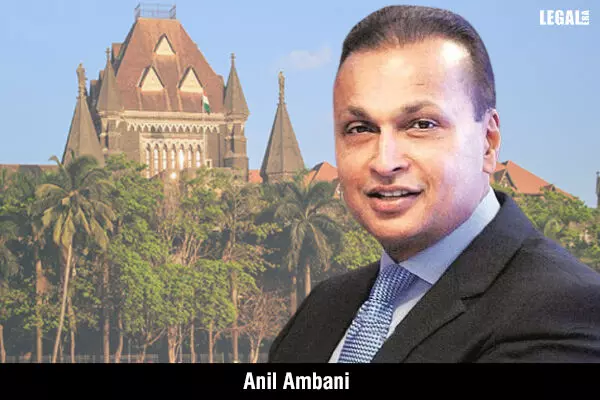- Home
- News
- Articles+
- Aerospace
- AI
- Agriculture
- Alternate Dispute Resolution
- Arbitration & Mediation
- Banking and Finance
- Bankruptcy
- Book Review
- Bribery & Corruption
- Commercial Litigation
- Competition Law
- Conference Reports
- Consumer Products
- Contract
- Corporate Governance
- Corporate Law
- Covid-19
- Cryptocurrency
- Cybersecurity
- Data Protection
- Defence
- Digital Economy
- E-commerce
- Employment Law
- Energy and Natural Resources
- Entertainment and Sports Law
- Environmental Law
- ESG
- FDI
- Food and Beverage
- Gaming
- Health Care
- IBC Diaries
- In Focus
- Inclusion & Diversity
- Insurance Law
- Intellectual Property
- International Law
- IP & Tech Era
- Know the Law
- Labour Laws
- Law & Policy and Regulation
- Litigation
- Litigation Funding
- Manufacturing
- Mergers & Acquisitions
- NFTs
- Privacy
- Private Equity
- Project Finance
- Real Estate
- Risk and Compliance
- Student Corner
- Take On Board
- Tax
- Technology Media and Telecom
- Tributes
- Viewpoint
- Zoom In
- Law Firms
- In-House
- Rankings
- E-Magazine
- Legal Era TV
- Events
- News
- Articles
- Aerospace
- AI
- Agriculture
- Alternate Dispute Resolution
- Arbitration & Mediation
- Banking and Finance
- Bankruptcy
- Book Review
- Bribery & Corruption
- Commercial Litigation
- Competition Law
- Conference Reports
- Consumer Products
- Contract
- Corporate Governance
- Corporate Law
- Covid-19
- Cryptocurrency
- Cybersecurity
- Data Protection
- Defence
- Digital Economy
- E-commerce
- Employment Law
- Energy and Natural Resources
- Entertainment and Sports Law
- Environmental Law
- ESG
- FDI
- Food and Beverage
- Gaming
- Health Care
- IBC Diaries
- In Focus
- Inclusion & Diversity
- Insurance Law
- Intellectual Property
- International Law
- IP & Tech Era
- Know the Law
- Labour Laws
- Law & Policy and Regulation
- Litigation
- Litigation Funding
- Manufacturing
- Mergers & Acquisitions
- NFTs
- Privacy
- Private Equity
- Project Finance
- Real Estate
- Risk and Compliance
- Student Corner
- Take On Board
- Tax
- Technology Media and Telecom
- Tributes
- Viewpoint
- Zoom In
- Law Firms
- In-House
- Rankings
- E-Magazine
- Legal Era TV
- Events
Interim relief to Anil Ambani by Bombay High Court in income tax case

Interim relief to Anil Ambani by Bombay High Court in income tax case
The Reliance ADA Group chairperson was issued a notice under the Black Money Act
The Bombay High Court has directed the Income Tax Department not to take any action till March 17 on the penalty notices issued against Anil Ambani, the chairperson of Reliance ADA Group, in connection with the income tax proceedings initiated against him.
A bench of Justice GS Patel and Justice Neela Gokhale passed the order in a petition filed by Ambani. He had challenged a show-cause notice issued to him under the Black Money (Undisclosed Foreign Income and Assets) and Imposition of Tax Act, 2015.
In September last, year the co-ordinate bench of the high court had also protected Ambani from any coercive action against him on the show-cause notice by way of ad-interim relief.
Appearing for Ambani, senior advocates Rafique Dada and Prateek Sekseria maintained that the IT department issued penalty notices in furtherance of the show-cause notice. They sought to challenge the levy of such penalty notices and also asked permission to amend the petition.
Allowing the same, the court ordered, “The petitioner will be pressing for ad-interim reliefs as subsequent demands have been made in the form of subsequent penalty notices. Leave is granted to amend the petition. The authorities will not take further steps pursuant to the penalty demand notice till 17 April 2023.”
The IT department had issued a notice to Ambani on 9 August 2022 for allegedly evading Rs.420 crores in taxes on undisclosed funds worth over Rs.814 crores held in Swiss Bank accounts.
The notice stated that Ambani was an economic contributor as well as the beneficial owner of the Bahamas-based entity Diamond Trust and the company Northern Atlantic Trading Unlimited.
The department alleged that Ambani failed to disclose the foreign assets in his Income Tax Return (ITR) filings. This contravened the provisions of the Black Money Act.
On the other hand, Ambani pointed out that under the law, the notice affected his vested interests. He submitted that the action by the authorities seeking to exercise powers was on the basis of transactions relating to a period 10 years prior to the Black Money Act coming into effect.
He stressed that the action was clearly violative of his fundamental rights under Articles 14 and 20 of the Constitution of India.
Stating that the provisions of the Act could not have a retrospective effect, Ambani contended that the show-cause notice was issued under the Black Money Act, despite the March 31 assessment order.


